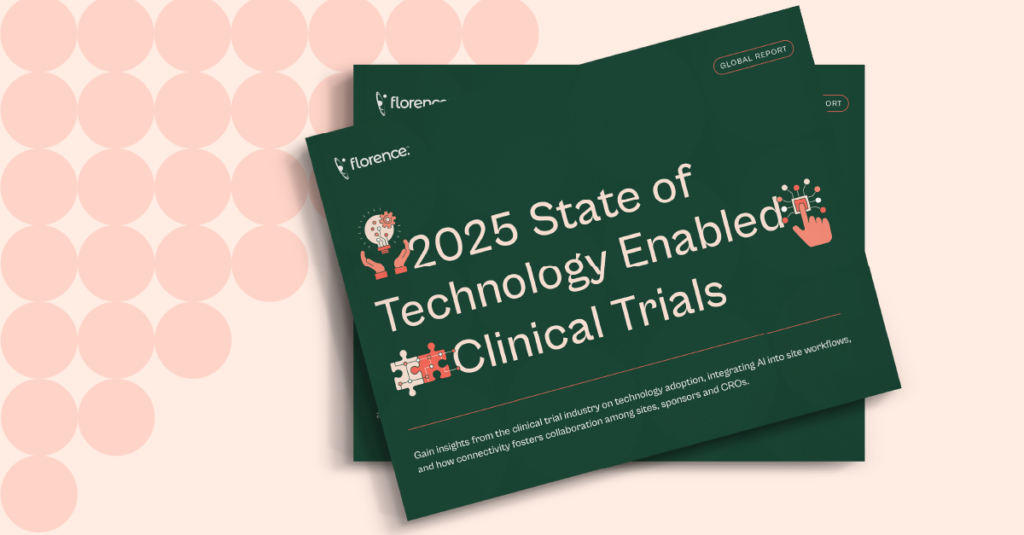5 Executive Insights from SCOPE Summit 2025: The Future of Clinical Trials
By Catherine Gregor, Chief Clinical Trial Officer, Florence Healthcare
The 2025 SCOPE Summit in Orlando brought together the leading minds in clinical trials to tackle some of the biggest challenges facing our industry. From policy shifts to AI-driven innovation, the discussions set the stage for what’s next in clinical research. Here are five key observations from the event that every clinical trial leader should be paying attention to:
1. The Industry Is Holding Its Breath on Federal Policy Changes
The 2025 SCOPE Summit in Orlando brought together the leading minds in clinical trials to tackle some of the biggest challenges facing our industry. From policy shifts to AI-driven innovation, the discussions set the stage for what’s next in clinical research. Here are five key observations from the event that every clinical trial leader should be paying attention to:
2. Bringing Research to the Community Is Still a Top Priority
The industry remains deeply committed to decentralizing clinical trials and expanding research into the community to improve patient access and recruitment. However, stakeholders recognize that achieving this goal requires more than just good intentions. Innovative trial designs, robust digital infrastructure, and stronger site-sponsor relationships will be critical to making community-based trials a sustainable reality.
3. The Demand for Data Standards and Interoperability Is Growing
The need for technology vendors to align on data standards and interoperability was one of the most urgent conversations at SCOPE. Sponsors understand that they cannot continue pushing the burden of technology fragmentation onto clinical trial sites. However, they are struggling to balance site workload with CRA efficiency without meaningful cooperation across vendors. The industry is demanding better solutions that streamline workflows without sacrificing compliance or quality.
4. New Trial and Site Models Are Showing Positive Results
Many sponsors are piloting non-traditional trial and site models, moving beyond the brick-and-mortar approach to explore hybrid and fully virtual trials. The early data from these pilots is promising, with reported improvements in patient access, retention, and overall trial efficiency. As lessons emerge, organizations are refining their approach to scaling these innovations while maintaining rigorous oversight and compliance.
5. AI Is the Buzzword of the Year, But Which Innovations Will Last?
AI is dominating industry conversations, with nearly every sponsor and technology provider investing heavily in its potential. From protocol design optimization to patient matching and site monitoring, AI-driven tools are being explored across the clinical trial lifecycle. However, there’s still a wait-and-see approach as stakeholders assess which AI applications will drive real, lasting value versus those that are just hype.
What’s Next? Let’s Talk Site Orchestration
These five themes underscore a clear reality: The future of clinical trials demands smarter orchestration between sites, sponsors, and technology providers. At Florence, we help organizations navigate these changes with solutions designed to reduce site burden, enhance interoperability, and accelerate research.
Want to dig deeper into these insights? Let’s talk. Connect with our Site Orchestration experts today to explore how we can help you stay ahead of the curve.


